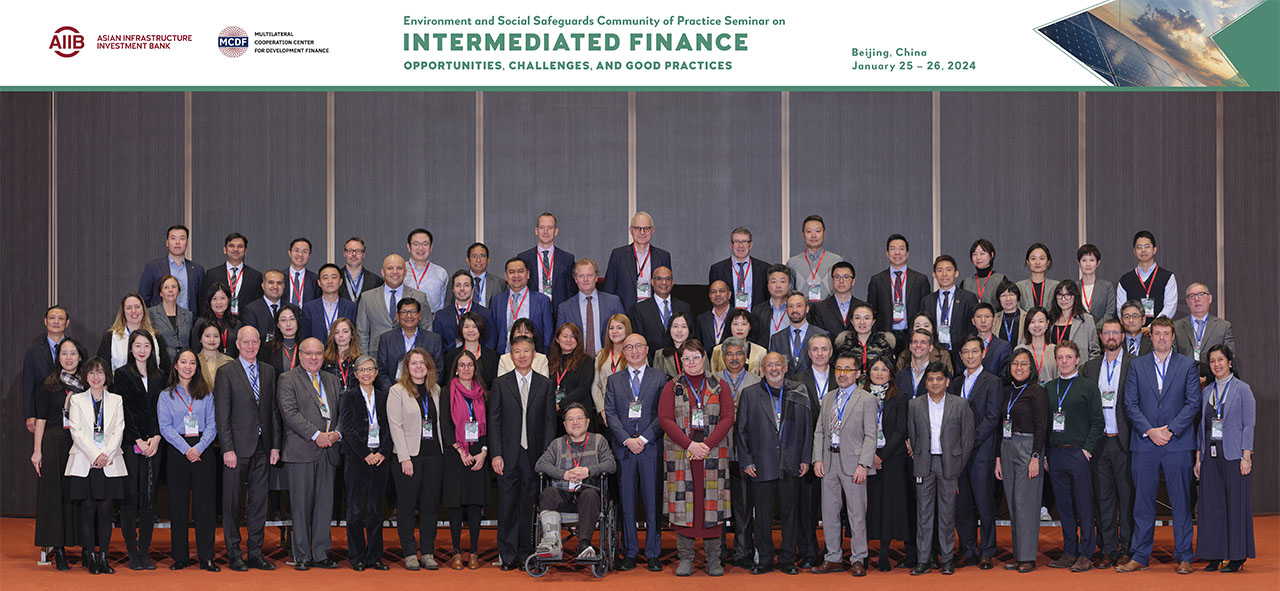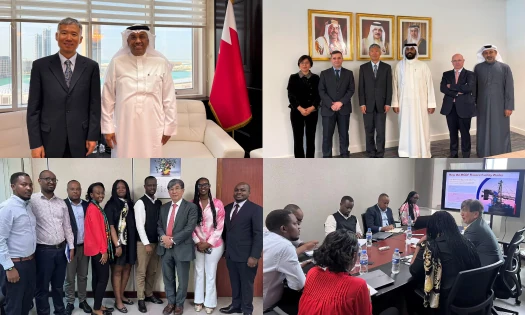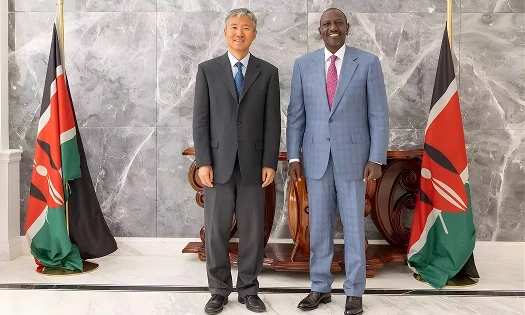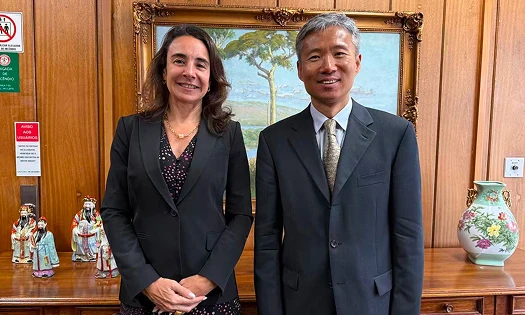Policies and standards to help financial institutions and partners manage environmental and social risks associated with intermediated finance (IF) investments and promote sustainable development were explored during a seminar at Asian Infrastructure Investment Bank (AIIB) headquarters in Beijing on 25-26 January, cohosted by AIIB and the Multilateral Cooperation Center for Development Finance (MCDF).
Part of the AIIB-MCDF Environment and Social (E&S) Safeguards Community of Practice knowledge-sharing series, the seminar convened policy makers and experts from International Financial Institutions (IFIs), development organizations, local financial institutions, and stakeholders to share their views on IF opportunities, challenges and E&S good practices, tools, policy frameworks, and emerging standards.
“Recipient financial institutions are crucial conduits through which sustainable practices can be applied and amplified,” noted MCDF CEO Zhongjing Wang in opening remarks. “By engaging with them, we can ensure that the principles of sustainable development are embedded across a diverse range of projects and regions.”
AIIB Vice President Urjit Patel described the urgency of inclusive and collaborative financing based on market principles to meet high sustainable connectivity investment demand. Jay Collins, Vice Chairman of Public Sector & Banking at Citi, detailed priorities for private capital mobilization, such as more prevalent feasibility studies, risk assessment data, and regulatory consistency to foster bankable projects.
Participants went on to underscore the importance of harmonizing E&S standards across IFIs and the private sector through collaboration, experience-sharing, and consistent methodologies to advance climate and broader sustainability objectives.
They highlighted the need for effective capacity building and resource allocation, with imperatives including the development of robust E&S management systems, risk assessment tools, and a learning environment to enhance the implementation and management of E&S projects through intermediated finance.
Participants also called for stepped-up efforts to integrate environmental, social, and governance (ESG) factors into financial decision-making. They considered the evolving complexities of ESG frameworks, digital adaptation of EGS practices, the private sector’s role in climate finance and green bonds, and other keys to aligning EGS frameworks with current market readiness and regulatory systems.
“There are many tools to ensure intermediated finance is assessed, managed, and monitored to high environmental and social standards,” said MCDF Senior Environment and Social Development Specialist Ines Fejzic. “My biggest takeaway is the need to boost existing partnerships, create new ones, and ensure everyone has a place at the table so we can listen and learn from each other.”
Yanning Wang, AIIB Operational Services Department Director General, added that IFIs are a small part of sustainable infrastructure investment flows and must therefore play a catalytic role. Expanding their network of good practice sharing is a step in the right direction, he concluded.
Presentation slides from the seminar can be accessed via the MCDF JIGSAW collaboration platform.
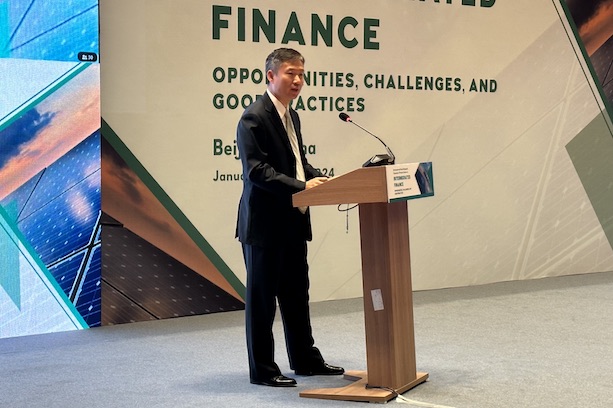
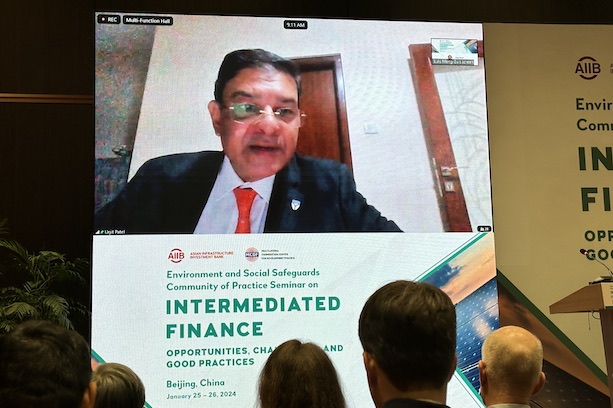
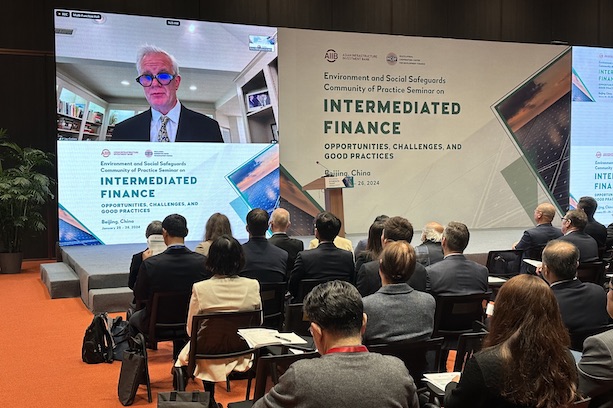
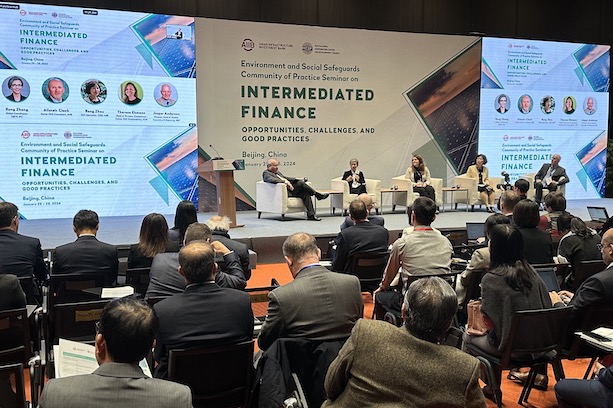
Contact
David Hendrickson
Senior Communications Officer
Mobile: +86 185 0114 6758
david.hendrickson@themcdf.org



